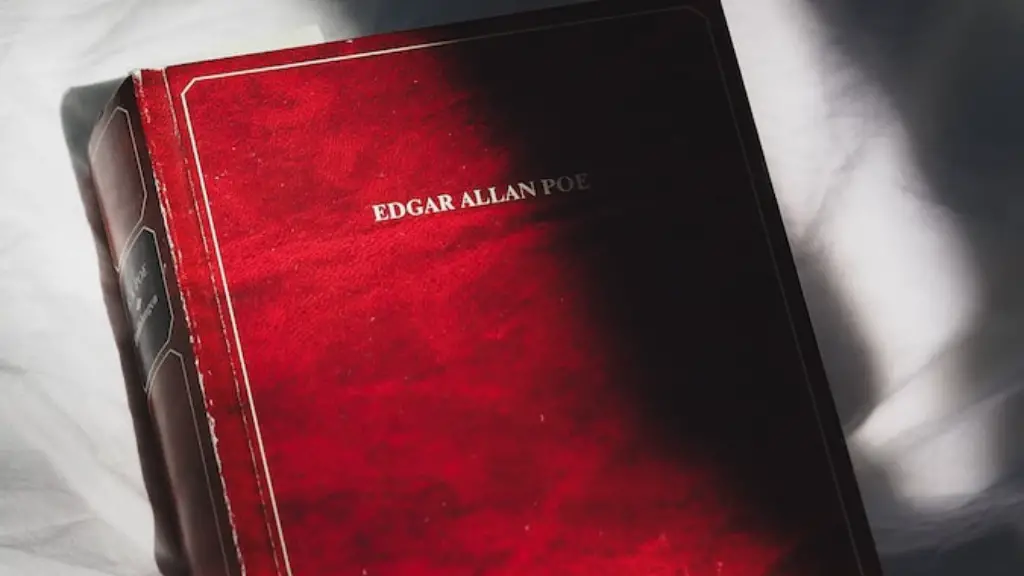Connotation in poetry, often referred to as the ‘connotative meaning’, refers to the implied or suggested meaning behind a word or phrase – in other words, the allusions or associations that a word carries to the reader. This makes it easier for poets to convey the nuances and subtle emotions associated with the words they use.
Understanding the connotative meaning of words is essential when writing and reading poetry; it provides depth, emotion and meaning that brings words to life. While a dictionary definition of a word can inform what something means literally, it may not convey the richness connotation adds to a poem. By tapping into the connotative meaning of a word in a poem, poets can bring life to the words and use them to create a specific atmosphere or emotion – something of great importance in poetry.
For example, take the word ‘lonely’. This word may call to mind feelings of abandonment and seclusion. But the word ‘aloneness’ can also refer to feelings of peacefulness and solitude. In a poem, each word can complement the message the poet wishes to convey in a different way – ‘lonely’ might evoke feelings of despair, whereas ‘aloneness’ could potentially hint at contentment with one’s own company.
Using examples from William Wordsworth’s works – in particular a poem he wrote, entitled ‘The Solitary Reaper’ – we can see how his choice of words impact the message and feel of the poem. In this piece, words such as ‘lonely’ and ‘solitary’ conveys a sense of loneliness and isolation, while ‘harvest’ allows a hint of hope and bounty. Each word carries its own connotation, which builds upon the poem’s message in a powerful way.
Understanding the connotative meaning of words is vital in poetry, not only because it allows poets to fashion their message and craft a certain mood more accurately, but also because it can make the poem more interesting and emotive for the reader. A great poet won’t simply rely on literal meanings; they’ll explore the potential of words to evoke powerful and sometimes unexpected emotions.
For poets and readers alike, it’s important to explore the connotative potential of words when writing and interpreting poetry. All words, from the simplest to the grandest, can capture emotions, feelings and nuances that can bring a poem to life – and this is where the power of connotation comes in.
Connotation and Imagery
As well as emotion, connotation in poetry can also add to the imagery of the poem. A poet can use terms such as ‘fall’ or ‘winter’ to conjure up an environment or a state of being for the reader; their choice of words can shape the images and messages of the poem in an entirely new way.
In the poem ‘The Solitary Reaper’, for example, the poet uses words such as ‘stream’, ‘dewy’, ‘valley’ and ‘grove’ to create vivid images of nature. These words also carry connotations of tranquillity, peace and beauty, which subtly builds on the surrounding imagery as well as the overall message of the poem.
The power of imagery combined with connotation creates a multi-faceted effect – it amplifies both the visual and the sentiment of a poem, which is why studying the nuance of a word is so important in the craft of writing.
Using Connotation Effectively
In order to understand the connotative meaning of a word it’s important to look beyond the dictionary definition. It’s also helpful to make use of synonyms to explore the complexity of a single word. Try swapping out one word for another and test to see which works best in the context of the poem. Does one word evoke stronger feelings than the other? Does one offer more visuals or sentiment?
Poets should also take into account the context of their poem and how the connotations of words can change depending on the meaning or message they’re conveying. In some cases, the connotations of a word can depend on the reader’s own life experience, which makes understanding the effect of connotation even more interesting (and challenging!)
When reading a poem, it’s important to consider the connotative meaning of words. By focusing on the nuance of what a word suggests, the reader can gain a deeper understanding of the poem’s message or story. So, when it comes to poetry, connotation is an incredibly powerful tool – this is why it’s essential for poets and readers alike to explore and understand its potential.
Connotation and Word Choice
The choice of words is always important in poetry, but connotation makes this even more important. Each word carries a wealth of creative and emotive potential, influencing the meaning and mood of a poem in a very real way. So for poets, understanding the connotation of a word – both in terms of the literal meaning and the deeper emotions it carries – is essential for crafting the perfect poem.
The connotation of words can also create a certain poetic style, depending on the words chosen. By exploring the emotion and imagery behind a word, it’s possible to create a certain ‘voice’ or ‘tone’ that can be used to convey specific themes or ideas. For example, selecting words that carry a wistful connotation can suggest a melancholic theme, or words with a hopeful connotation could be used to create a sense of optimism or joy.
Finally, understanding the connotative meaning of words can also help poets to avoid cliches. Clichés occur when writers rely too heavily on the same words and phrases. By exploring the connotations of a word, it’s possible to come up with fresh and new ideas, as well as to bring more interest and originality to a poem.
Connotation and Syntax
The syntax of a poem plays an important role in conveying the connotations the poet wishes to evoke. For example, the structure of a sentence – how one phrase follows another, how words are repeated – can add connotations of its own. In addition, the punctuation of a poem has connotations that can influence the mood or meaning of the poem.
The use of language is a major part of poetry and syntax plays an important role in conveying the intended message. Consider the following sentence: ‘She goes alone into the night,’ which has a certain connotation of sadness, solitude and longing; compare this to the slightly altered sentence: ‘She strides alone into the night’, which carries a connotation of adventure and courage.
By manipulating the syntax and punctuation of a sentence, a poet can enhance the mood and meaning of their poem – and this is what makes understanding the connotations of words and syntax invaluable for poets.
Conclusion
The connotations of words can add a wealth of emotion, sentiment and imagery to a poem. For poets, understanding the connotation of a word is essential in order to create the perfect poem and connote the message they wish to convey. For readers, it’s equally important to appreciate the nuances of a word and explore the subtle emotions it carries. This allows them to gain a richer, deeper understanding of the poem.




